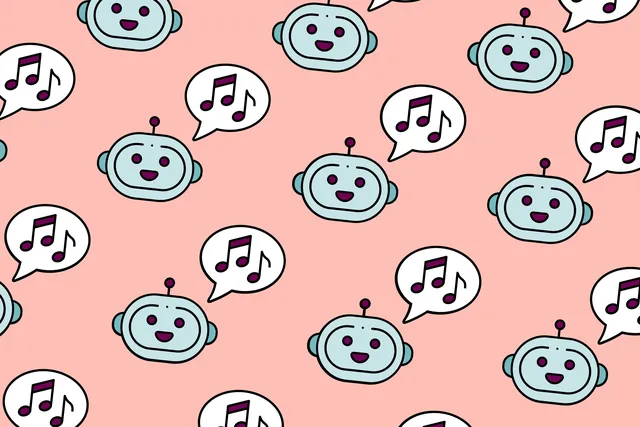In the wake of recent copyright infringement lawsuits, AI music startups Suno and Udio are hitting back, accusing the record labels behind the lawsuits of trying to squash competition in the music industry. Both companies have openly admitted to using copyrighted materials to train their music-generating AI models, arguing that this practice falls under the fair-use doctrine.
The Battle Begins
The lawsuits against Suno and Udio, filed in June by the Recording Industry Association of America (RIAA), represent a significant challenge. The RIAA, which includes industry giants like Universal Music Group (UMG), Sony Music Entertainment, and Warner Records, claims that Suno and Udio have engaged in “unlicensed copying of sound recordings on a massive scale.” They are seeking damages of up to $150,000 for each infringed work.
How AI is Remixing the Music Scene
Suno and Udio have developed innovative AI tools that allow users to create music by typing in written descriptions. According to the RIAA, some of the generated tracks feature vocals eerily similar to those of iconic artists such as Bruce Springsteen, Michael Jackson, and ABBA. Suno’s music generator, since its launch in December 2023, has been used 12 million times as of May.
The Fair Use Defense
In their legal responses, Suno and Udio argue that the lawsuits are a sign of the music industry resisting new forms of competition. “Helping people generate new artistic expression is what copyright law is designed to encourage, not prohibit,” Udio stated. They assert that their use of existing sound recordings to identify musical patterns and enable new creations falls squarely within fair use under copyright law.
Suno’s Perspective
In a blog post, Suno criticized the record labels for misunderstanding how AI music tools operate. They likened their model training process to “a kid learning to write new rock songs by listening religiously to rock music,” rather than merely copying existing tracks. Suno acknowledged using online music for training but pointed out that other tech giants like OpenAI, Google, and Apple also use publicly available internet data for AI training.
The Broader Implications
Suno emphasized that much of the internet contains copyrighted material, including content owned by major record labels. They argued that learning from this data does not constitute infringement. “Learning is not infringing. It never has been, and it is not now,” Suno stated.
The Industry’s Stance
The RIAA responded to Suno’s and Udio’s filings by insisting that the companies did not seek the necessary permissions to use copyrighted works, unlike platforms such as YouTube. “There’s nothing fair about stealing an artist’s life’s work, extracting its core value, and repackaging it to compete directly with the originals,” the RIAA said. They argued that the startups’ vision for the “future of music” threatens artists’ ability to earn a living.
The Ongoing Debate
The use of fair-use doctrine as a defense in copyright infringement cases is not new. In June, Microsoft AI boss Mustafa Suleyman incorrectly asserted that anything on the open web is “freeware” for anyone to use. This ongoing debate highlights the tension between innovation in AI and the protection of intellectual property in the digital age.
As the lawsuits proceed, the outcomes could set significant precedents for how AI can be used in creative industries and what constitutes fair use in the era of machine learning. Suno and Udio’s cases will likely be closely watched by both the tech and music industries, as they navigate the complex landscape of copyright and AI innovation.










